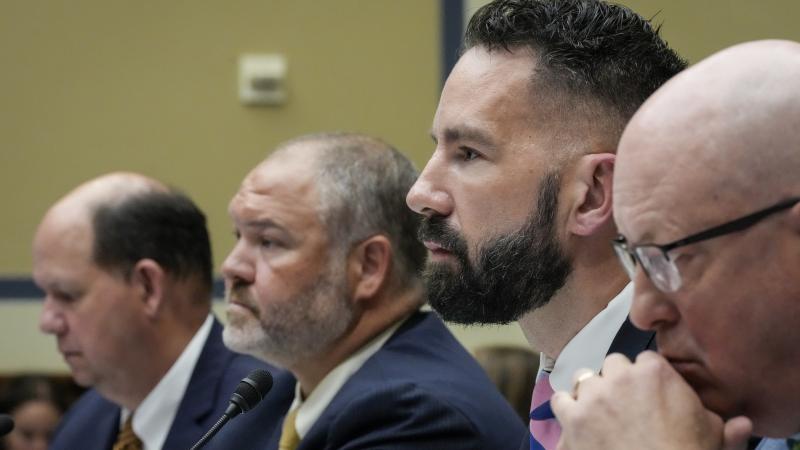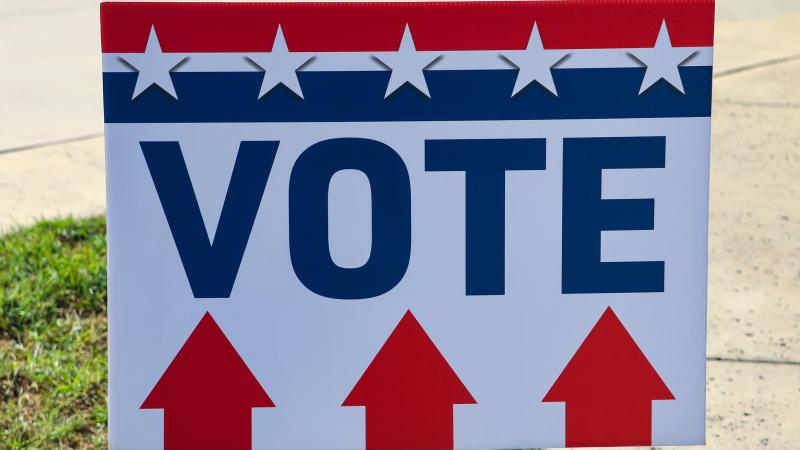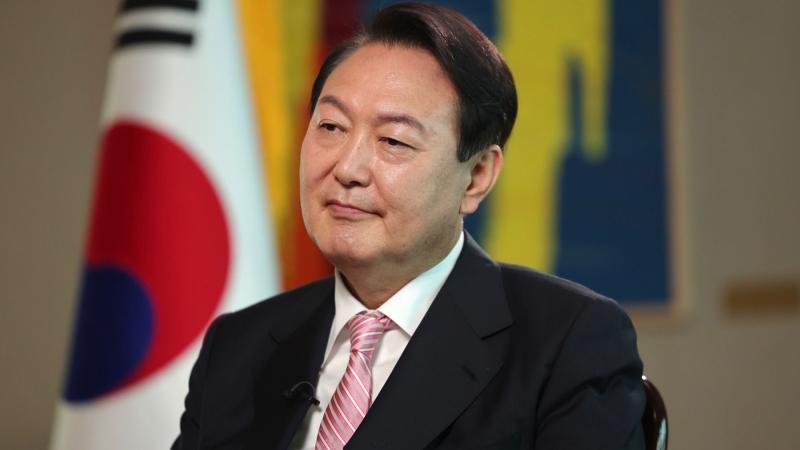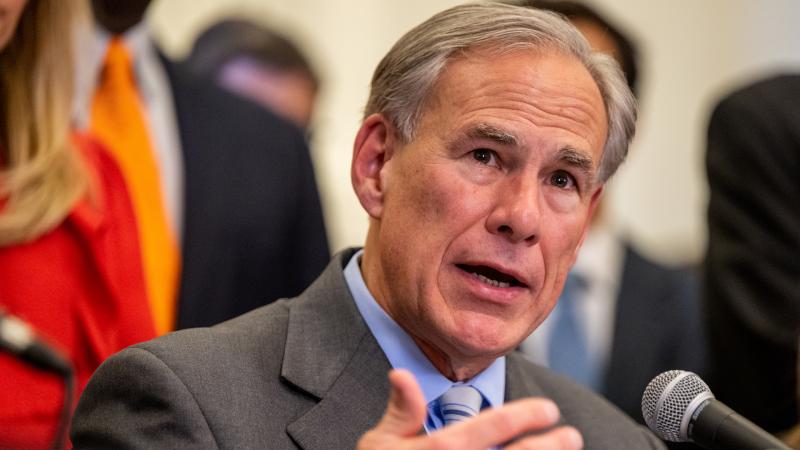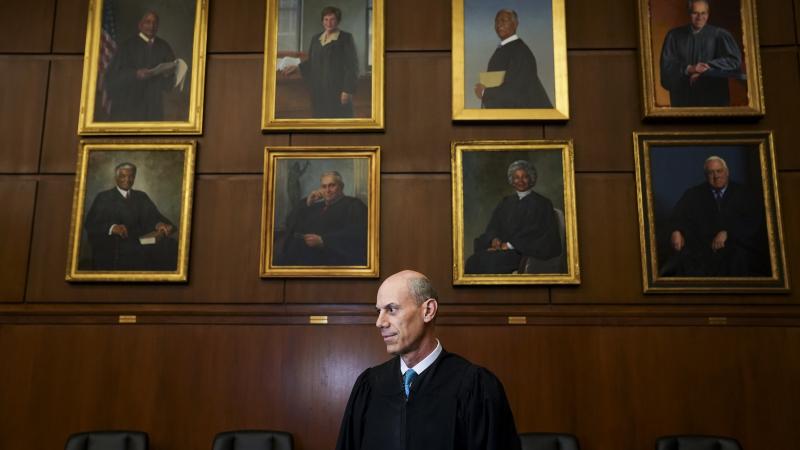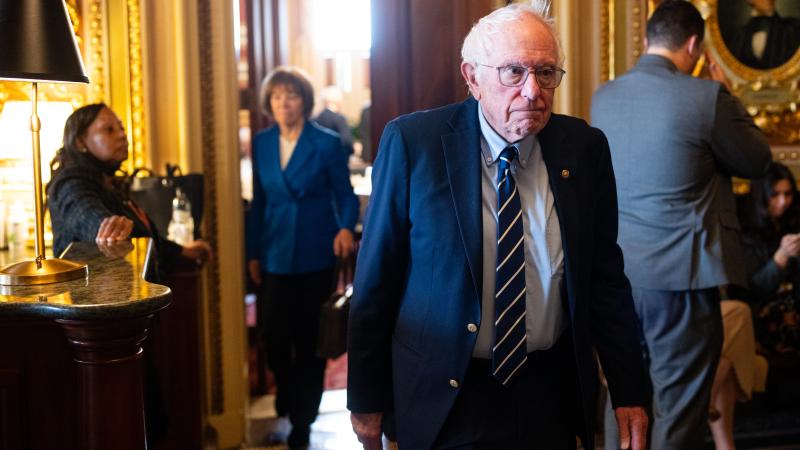Another complaint adds to mounting evidence of FBI's political bias and whistleblower retaliation
The growing list of complaints indicates that politics has infected security clearance reviews at the increasingly "weaponized" bureau.
Evidence is mounting that the FBI—the country’s premier law enforcement agency—has resorted to basing decisions to suspend or revoke security clearances on FBI employees’ political views.
The evidence, which suggests political motivations in how the bureau has treated several of its own workers, has surfaced through whistleblower complaints recently filed internally and with the Justice Department’s watchdog.
The latest in a line of whistleblowers—a former supervisor who oversaw security clearance reviews—alleged that the bureau has been improperly suspending or revoking the security clearances of agents it believes hold conservative political views, Just the News reported Tuesday.
The new whistleblower allegations surfaced Tuesday in correspondence obtained by Just the News that was sent to the House and Senate Judiciary committees and DOJ Inspector General Michael Horowitz. Rep. Andy Biggs, R-Ariz., says this newest revelation should spur Congress to use its power of the purse to keep the FBI in check.
“There are things that we can do that Congress should have done, and now I hope my recalcitrant friends will join me. We should be actually defunding aspects of the FBI. That is what the founders gave us that is the best check,” Biggs told the “Just the News, No Noise” TV show on Tuesday.
I know people say, "Oh, you're anti police, because you want to do that.” You know what I am? I am anti-violation of Americans’ rights. And there are things within the FBI that we need, that they do a good job on, and there are things that they are abusing and are weaponized. And so you stop funding those areas. And doggone it, if we’re…if we're not willing to do that, then we're not willing to stand up for freedom in America today,” he added.
In his complaint, the former FBI supervisor provided several examples of political bias he observed in security clearance reviews for employees who held traditionally conservative views, including having doubts about how the agency was pursuing January 6 suspects and holding skeptical views of the COVID-19 vaccine.
The FBI says it has treated whistleblowers fairly and followed proper protocol in security clearance reviews.
“The FBI takes seriously its responsibility to FBI employees who make protected disclosures under whistleblower regulations, and we are committed to ensuring they are protected from retaliation. The security clearance adjudication process requires multiple levels of review to ensure decisions are in compliance with applicable policies and procedures. Those policies and procedures do not allow security clearance actions to be taken for improper reasons such as an individual exercising First Amendment protected rights, to include an individual’s political or medical views, or ethnicity or any other protected class,” the FBI told Just the News in a statement Tuesday.
Other whistleblowers have come out publicly—including Marcus Allen, Garrett O’Boyle, and George Hill—alleging that they were subjected to retaliation after raising concerns internally, and later to Congress, about the FBI’s pursuit of January 6 suspects, investigation of pro-life Americans following the overturning of Roe v. Wade, and other issues.
As a supervisor in the FBI’s security division, the new whistleblower—whose name remains redacted—had a front row seat to what his complaint describes as political bias from the bureau leaders against their employees.
"If an FBI employee fit a certain profile as a political conservative, they were viewed as security concerns and unworthy to work at the FBI," the whistleblower's lawyer, Empower Oversight President Tristan Leavitt, wrote to Horowitz in the complaint and requested an independent investigation.
You can read the whistleblower complaint below:
The whistleblower was assigned to supervise the probe into Marcus Allen, who was being investigated under "Guideline A – Allegiance to the United States", according to the complaint. Allen also reportedly raised the suspicion from the FBI reviewers because he was hesitant to “attest to his current vaccination status.”
Despite lower-ranking agents’ findings that Allen had not violated the guidelines, higher-ranking officials pushed for his security clearance to be revoked for questioning the January 6 prosecutions, according to the new letter.
In June, the FBI reached a settlement with Allen – who is also represented by Empower Oversight – to restore his security clearance and give him 27 months of back pay and benefits that the agency withheld during his suspension.
The Allen investigation is just one security review that the new whistleblower observed during his time at the agency. His complaint to Horowitz details several other examples of probes focused on employees' views about January 6 and vaccines, hot button political topics and matters of opinion usually protected by the First Amendment.
In another case the supervisor observed in September 2022, the bureau appeared to use a political litmus test to determine whether an employee should retain his security clearance. “As had become commonplace at SecD, the investigator asked SA [redacted]’s coworkers about his vaccine status and whether he had supported former President Donald Trump,” the complaint to Inspector General Horowitz reads. Just the News reported separately on this incident last month.
In March 2023, another case came before the supervisor related to an agent who was “accused of disagreeing with certain investigations related to January 6, 2021,” the complaint reads. The whistleblower asked a subordinate to review the case and draft a suspension of the agent, however, that subordinate could not find “a factual basis to suspend.”
After the whistleblower brought this concern to a supervisor, specifically that drafting a suspension was not possible, she allegedly became angry with him. A few days later, the whistleblower was subjected to a performance review and cited for bad writing, according to the complaint.
Tristan Leavitt, President of Empower Oversight, the group representing the whistleblower, told the "John Solomon Reports" podcast Tuesday that his client says these kinds of questions were “extremely common” in the division.
“Those were the things that they were always asking and, in part, that's because that's what security division leadership at the top was looking for, that’s the profile of individuals that they thought were unworthy to work at the FBI,” Leavitt said.
“And again, our current—this newest client confirms that these questions were just a really huge part of the process. And of course, what is so insidious about it in part is these bases were never cited in the official security clearance suspension letters, the security clearance revocation letters, they cited only this, whatever they gave us the pretext,” he added.
“Meanwhile, behind the scenes, we know, they're talking all the time about whether or not someone had gotten the vaccine or whether or not they were perceived as being supportive of President Trump.”
In addition to the behavior the whistleblower observed in FBI leadership, he claims to have experienced himself an episode of retaliation. After he brought concerns about his supervisor’s behavior to the Justice Department, his clearance was suspended. In fact, the day after he contacted the inspector general on September 19, 2023, with complaints about one of his supervisors, he was called in to a meeting and notified that he would be suspended, according to the complaint.
The bureau officials cited his decision to send an image of "health and wellness" activities to a former FBI colleague and for "performance" issues and "attitude," according to the complaint. The whistleblower submitted to a polygraph test after the interview, which “indicated no deception” in his denial that he sent the image to an outside source. Nevertheless, the suspension was upheld and he was escorted out of the building.
Leavitt says Congress and the Inspector General have a responsibility to probe the security division for these alleged biases and improper suspensions.
“Where was [Director] Chris Wray in all of this, right? What was deputy director, Paul Abbate’s, role in these things happening?” he said. “And so I think, I think these new things really raise questions about FBI leadership altogether. And the inspector general, you know, needs to look at that, Congress needs to look at that.”

